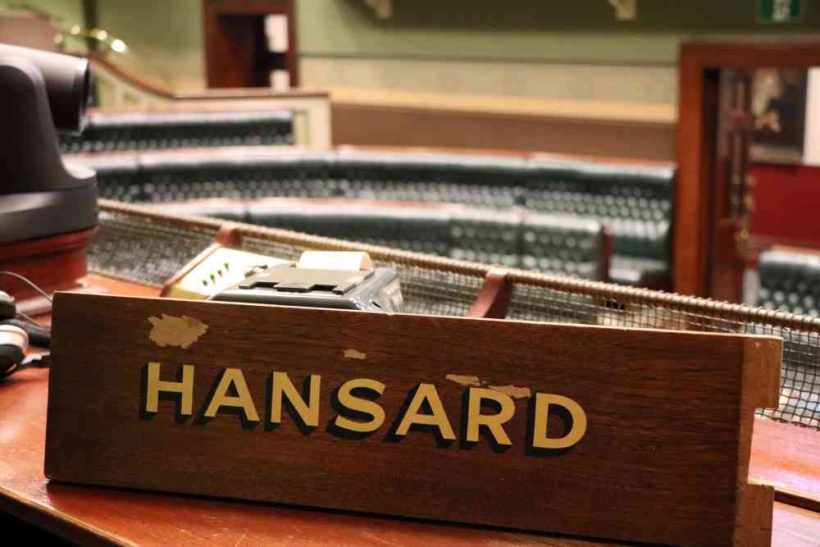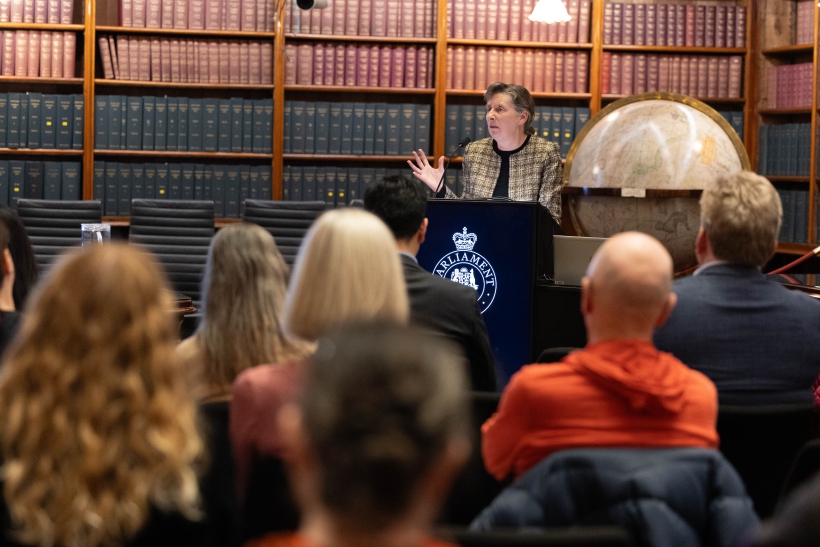
We asked Parliamentary Hansard Reporter James Oake about his work with the Parliament of NSW. Here’s what he told us:
What is Hansard?
Hansard is the written record of all proceedings and debates in Parliament. The Hansard team also provides transcripts of all parliamentary committee hearings.
Could you describe a day in the life of a Hansard reporter?
Depending on whether it’s a sitting day or a committee hearing is being held, a Hansard reporter’s day can vary wildly. The Houses sit on Tuesdays, Wednesdays and Thursdays and go until the late hours each night. Each House has 10 reporters assigned to it and reporters are rostered in 10-minute turns. The roster rotates until the Houses rise, meaning that each reporter will have 1h 40m to get their turn done before they are next due back in the chamber. This may sound like a long time, but the linguistic massaging and procedural additions required mean that reporters often work on their turns until the last minute.
Committee days are shorter and less pressured, but the need for accuracy and thoroughness is no less important. Given that what is said by witnesses is sworn testimony, ensuring that everything is recorded correctly is vital. Committee hearings range in duration from an hour to all day (such as in budget estimates, when the Opposition spends a few weeks twice a year grilling Ministers and their departmental heads about how they have spent, and intend to spend, the money given to them). Hearings generally take place in the Parliament but, depending on the nature of the inquiry, they often take place off site.
Can you tell us a little bit about how the work of Hansard has changed over time?
For decades Hansard reporters would dictate their shorthand notes of what happened in the Houses to typists. However, as time moved on, so did Hansard, and now stenography machines, speech recognition software and high-tech audiovisual equipment facilitate the creation of each same-day Hansard publication. The nature of each Hansard has also changed over the centuries. Originally, Hansard publications in Australia and around the world were not much more than summaries of what happened each day. However, as expectations around democratic transparency grew, Hansard became what it is now: a rigorous and accurate account of everything that happens in Parliament.
What do you love about working at Parliament House?
It wouldn’t be overstating it too much to say everything. I get an incredible feeling of pride when I walk through the gates in the morning knowing that I’m a part of Australia’s oldest Parliament. I also love the people, especially at Hansard, who are an eclectic, funny and lovely bunch of people. We truly are like a little family. Lastly, I love the work. The feeling of satisfaction when a turn has been completed and you’re happy with it, safe in the knowledge that you accurately represented what happened in the Chamber, is amazing.
Hansard is available on the Parliament’s website. There are separate pages that sort Hansard by member, date, and bill.



